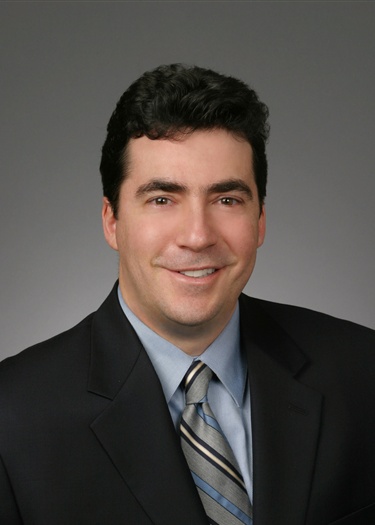The Department of Health and Human Services Office of Inspector General (HHS-OIG) published a favorable advisory opinion earlier this month, Advisory Opinion 25-07, approving an arrangement through which a biopharmaceutical company (the Requestor) provides free testing to patients who are diagnosed with a particular condition to determine whether the patient has a subtype of condition for which the manufacturer has an approved medication (the Arrangement). This opinion follows two favorable advisory opinions on manufacturer-sponsored testing (see prior Sidley Updates here and here).1 The opinions to date provide a helpful set of potential safeguards that labs and their partners may wish to consider when contemplating sponsored arrangements with drug or device manufacturers.
The Proposed Arrangement
The Requestor manufactures an FDA-approved medication with three indications for a particular condition. As part of the proposed Arrangement, the Requestor offers a free next-generation sequencing-based in vitro diagnostic test to screen for patients with the condition that have a particular type of deficiency. The test is useful only for the purposes of determining whether the Requestor’s medication or a competitor product would be an appropriate treatment for the patient. The Requestor certified that approximately half of patients with the underlying condition have the deficiency.
The test is an FDA-approved companion diagnostic for the Requestor’s medication. Patients must meet the following four criteria in order to qualify for the free test:
- The patient must have a negative test result from a prior genetic test for the particular mutation that is relevant to the deficiency.
- The patient must have a previously collected tumor tissue sample that is able to be tested using the companion diagnostic.
- The use of the test must be for an indication consistent with the test’s FDA-approved label.
- The patient may not have previously received the test.
The Arrangement is open to all eligible patients in all 50 states and the District of Columbia, regardless of income or insurance status. The test is typically covered by federal healthcare programs and private insurance. Federal healthcare program patients and patients with private insurance, as applicable, are responsible for applicable cost-sharing outside of the Arrangement.
With respect to prescribers, the opinion reflects that the Requestor’s sales representatives and certain nonsales personnel with expertise in diagnostic testing engage in passive, nonpromotional disease-awareness activities in connection with the Arrangement, including providing unbranded leave-behind educational materials to providers. The Requestor certified that sales personnel are not permitted to discuss the Arrangement, including reactively. Prescribers are directed to nonsales personnel for questions regarding the Arrangement. All personnel are prohibited from discussing the Requestor’s medication during any disease-awareness communications that include a discussion of the Arrangement.
As part of the Arrangement, the Requestor contracts with a lab to conduct the testing for a fixed fee for each test performed for an eligible patient. The lab is prohibited from billing any patient, payor, or other third party. The lab is contractually prohibited from promoting the Arrangement. HHS-OIG states that it does not express any other opinion as to the manufacturer’s Arrangement with the lab because no further details were provided by the Requestor.
Finally, the Requestor certifies that the lab will provide certain limited, aggregated, deidentified data regarding the test to the Requestor, which is distributed to a limited number of people that do not include field personnel. The Requestor certified that sales personnel are prohibited from using data related to the Arrangement to target patients or providers and that the data is not used to direct any field activities. The Requestor has also implemented internal controls to prohibit use of the data to reidentify any patient or provider.
The Agency’s Analysis
Anti-Kickback Statute
According to HHS-OIG, the Arrangement results in remuneration to both eligible patients and their physicians, thereby implicating the Anti-Kickback Statute (AKS). With respect to patients, HHS-OIG noted that free testing has value because patients would have to pay associated cost sharing for the test. With respect to the providers, the Arrangement conveys value by allowing the provider to offer a service at no cost that may allow an opportunity for the provider to bill for other services. Additionally, there is no available safe harbor under the AKS for the Arrangement.
Nevertheless, HHS-OIG concluded that the Arrangement posed a low risk of fraud and abuse under the AKS, based primarily on the following factors:
- First, HHS-OIG concluded the Arrangement is unlikely to result in inappropriate use or overuse. This is principally because the test will reveal only whether a patient may be eligible for the Requestor’s medication or a competitor product. In fact, test results may lead to a prescription for a competitor drug because approximately half of all patients with the condition test negative for the deficiency.
- Second, HHS-OIG concluded that the Arrangement is unlikely to skew clinical decision-making because field personnel do not discuss the Requestor’s medication in connection with the Arrangement, and providers do not receive any remuneration from Requestor.
- Third, HHS-OIG highlighted several safeguards that prevent the Arrangement from being used as a marketing or sales tool by the manufacturer or the lab: (i) Requestor’s sales representatives do not consider provider use or prescribing history in distributing materials; (ii) the lab does not provide Requestor with identifiable information about patients; (iii) Requestor does not use data from the lab for sales and marketing activities (including sales targeting or incentives); (iv) Requestor’s contract with the lab prohibits promoting the Arrangement to providers or patients; and (iv) Requestor does not proactively provide information about the Arrangement directly to providers or patients.
Civil Monetary Penalty Statute
HHS-OIG also found that the Arrangement implicates the beneficiary inducement prohibition under the Civil Monetary Penalty Statute (CMP), which provides for civil penalties against any person who offers or transfers something of value to a Medicare or state healthcare program beneficiary that the person knows or should know is likely to influence a beneficiary’s selection of a particular provider or supplier. While the CMP typically applies to providers or suppliers who offer something of value, and not pharmaceutical manufacturers, here HHS-OIG concluded that the provision of a free test by Requester could influence a beneficiary to seek follow-up care from the provider who ordered the free test. HHS-OIG does not address whether the lab in the Arrangement would have potential CMP risk.
The CMP has several exceptions, including for arrangements that promote access to care and pose a low risk of harm to patients and federal healthcare programs.2 HHS-OIG ultimately concluded that while the Arrangement implicates the CMP, the Arrangement satisfies the Promotes Access to Care Exception for the following reasons:
- First, HHS-OIG concluded that the Arrangement improves a beneficiary’s ability to obtain care payable by Medicare or Medicaid because the test is essential to determine whether the Requestor’s medication could be effective in a particular patient.
- Second, HHS-OIG concluded that the Arrangement is unlikely to skew clinical decision-making because the test informs whether the drug can be prescribed, and providers already may be considering the Requestor’s drug or the competitor drug for a particular patient.
- Third, HHS-OIG concluded that the Arrangement is unlikely to increase costs to federal healthcare programs or beneficiaries through inappropriate use because the test determines whether it is even appropriate for the drug to be prescribed, and Requestor does not require or incentivize providers who order the test to recommend or prescribe any Requestor products.
- Finally, HHS-OIG determined that the Arrangement does not raise patient safety or quality-of-care concerns because it is designed to determine whether the Requestor’s drug may be effective for a particular patient.
HHS-OIG’s opinion follows two previous favorable opinions analyzing manufacturer-sponsored laboratory testing programs. Advisory Opinion 25-07 is, however, the first of the three to address a companion diagnostic test to a medication. Because the companion diagnostic test yields fairly narrow results, this opinion is still in keeping with HHS-OIG’s approach of approving sponsored testing Arrangements that provide only limited information to patients and providers, thus cabining the potential value to these parties.
Given the scientific advances in personalized medicine and specialty lab tests, including FDA-approved companion diagnostics, labs and manufacturers may be increasingly interested in sponsored testing Arrangements to support patient access. While manufacturer-sponsored testing has been the subject of government enforcement and investigations, the HHS-OIG opinions provide a set of safeguards that may be helpful for labs when contemplating whether to enter into an Arrangement with a manufacturer for sponsored testing and how to structure that Arrangement to manage potential AKS and CMP risks.
1OIG Advisory Opinion 24-12; OIG Advisory Opinion 22-06.
242 C.F.R. § 1003.110.
Attorney Advertising—Sidley Austin LLP is a global law firm. Our addresses and contact information can be found at www.sidley.com/en/locations/offices.
Sidley provides this information as a service to clients and other friends for educational purposes only. It should not be construed or relied on as legal advice or to create a lawyer-client relationship. Readers should not act upon this information without seeking advice from professional advisers. Sidley and Sidley Austin refer to Sidley Austin LLP and affiliated partnerships as explained at www.sidley.com/disclaimer.
© Sidley Austin LLP



